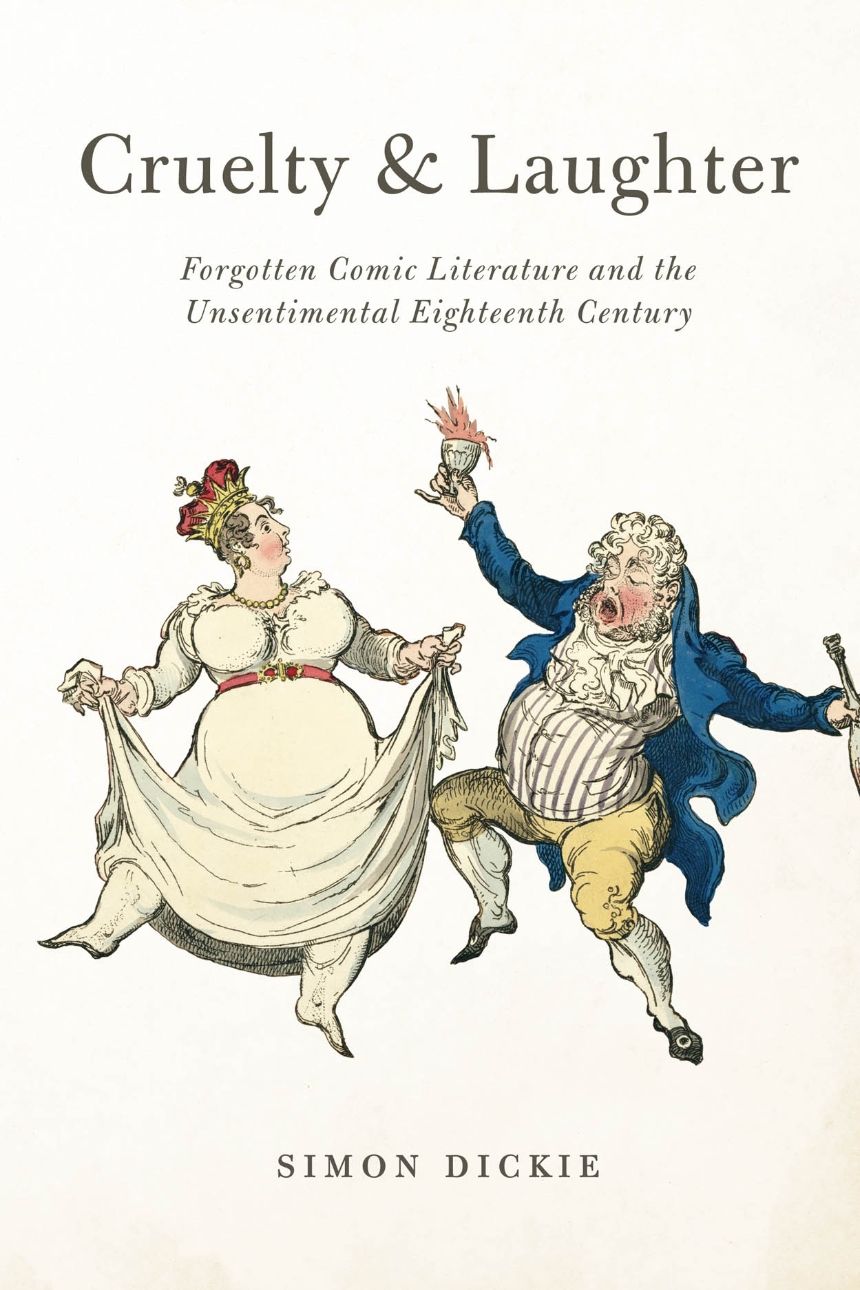Cruelty and Laughter
Forgotten Comic Literature and the Unsentimental Eighteenth Century
Cruelty and Laughter
Forgotten Comic Literature and the Unsentimental Eighteenth Century
Eighteenth-century British culture is often seen as polite and sentimental—the creation of an emerging middle class. Simon Dickie disputes these assumptions in Cruelty and Laughter, a wildly enjoyable but shocking plunge into the forgotten comic literature of the age. Beneath the surface of Enlightenment civility, Dickie uncovers a rich vein of cruel humor that forces us to recognize just how slowly ordinary human sufferings became worthy of sympathy.
Delving into an enormous archive of comic novels, jestbooks, farces, variety shows, and cartoons, Dickie finds a vast repository of jokes about cripples, blind men, rape, and wife-beating. Epigrams about syphilis and scurvy sit alongside one-act comedies about hunchbacks in love. He shows us that everyone—rich and poor, women as well as men—laughed along. In the process, Dickie also expands our understanding of many of the century’s major authors, including Samuel Richardson, Lady Mary Wortley Montagu, Tobias Smollett, Frances Burney, and Jane Austen. He devotes particular attention to Henry Fielding’s Joseph Andrews, a novel that reflects repeatedly on the limits of compassion and the ethical problems of laughter. Cruelty and Laughter is an engaging, far-reaching study of the other side of culture in eighteenth-century Britain.
384 pages | 15 halftones | 6 x 9 | © 2011
History: European History
Literature and Literary Criticism: British and Irish Literature, Humor
Reviews
Table of Contents
List of Illustrations
Preface
Acknowledgments
Introduction: The Unsentimental Eighteenth Century, 1740–70
1 Jestbooks and the Indifference to Reform
Nasty Jokes, Polite Women
How to Be a Wag
2 Cripples, Hunchbacks, and the Limits of Sympathy
Deformity Genres
Dancing Cripples and the London Stage
Streets and Coffeehouses
Poetry and Polite Letters
Damaged Lives
Disabled Bodies and the Inevitability of Laughter
3 Delights of Privilege
Laughing at the Lower Orders
Contexts from Social History
Frolics, High Jinks, and Violent Freedoms
Lovelace at the Haberdasher
4 Joseph Andrews and the Great Laughter Debate
Narrative from a High Horse
The Ethics of Ridicule
Fielding’s Problem with Parsons
5 Rape Jokes and the Law
Laughter and Disbelief
Modesty and the Impossibility of Consent
Functions of an Assault
Accusing, Making Up, and the Local Magistrate
Humors of the Old Bailey
In Conclusion: The Forgotten Best-Sellers of Early English Fiction
Ramble Novels and Slum Comedy
Reading for the Filler
Abbreviations
Notes
Index
